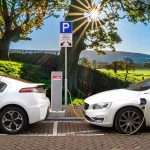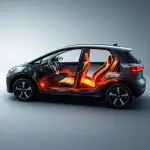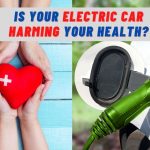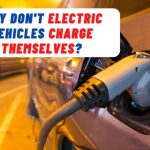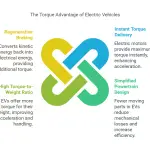Last Updated on November 28, 2022 by

Since its inception in 2003, Elon Musk’s company Tesla declared 2022 as its first profitable year. The reason behind Tesla’s sudden growth is the popularity of electric cars.
Many vouch for electric cars as the future of traveling. These vehicles are considered safe for the environment because they do not produce any emissions by burning fuel.
But electric cars may not be the pollution-free future we all envisage. This is primarily because electric cars are not as environmental-friendly as you may think.
Problems if all cars were electric
If all the cars in the world were to turn electric, there could be major effects on vehicle performance and the economy at large.
The current technology does not put electric cars at par with fuel-run cars. An average electric car travels less on a full charge than a fuel car travels on a full tank.
To compensate for this, all the governments in the world would have to replace gas stations with charging stations. This would be an expensive ordeal.
Electric cars are known to provide more torque, leading to faster pick-up. But fuel cars can achieve greater max speeds.
Even if technological advancements solve the problem of speed, the batteries of electric cars pose a serious environmental threat.
Electric car batteries add to electronic waste. Also when these batteries expire, they emit a lot of carbon dioxide, adding to the problem of climate change.
Why electric vehicle are not the future?
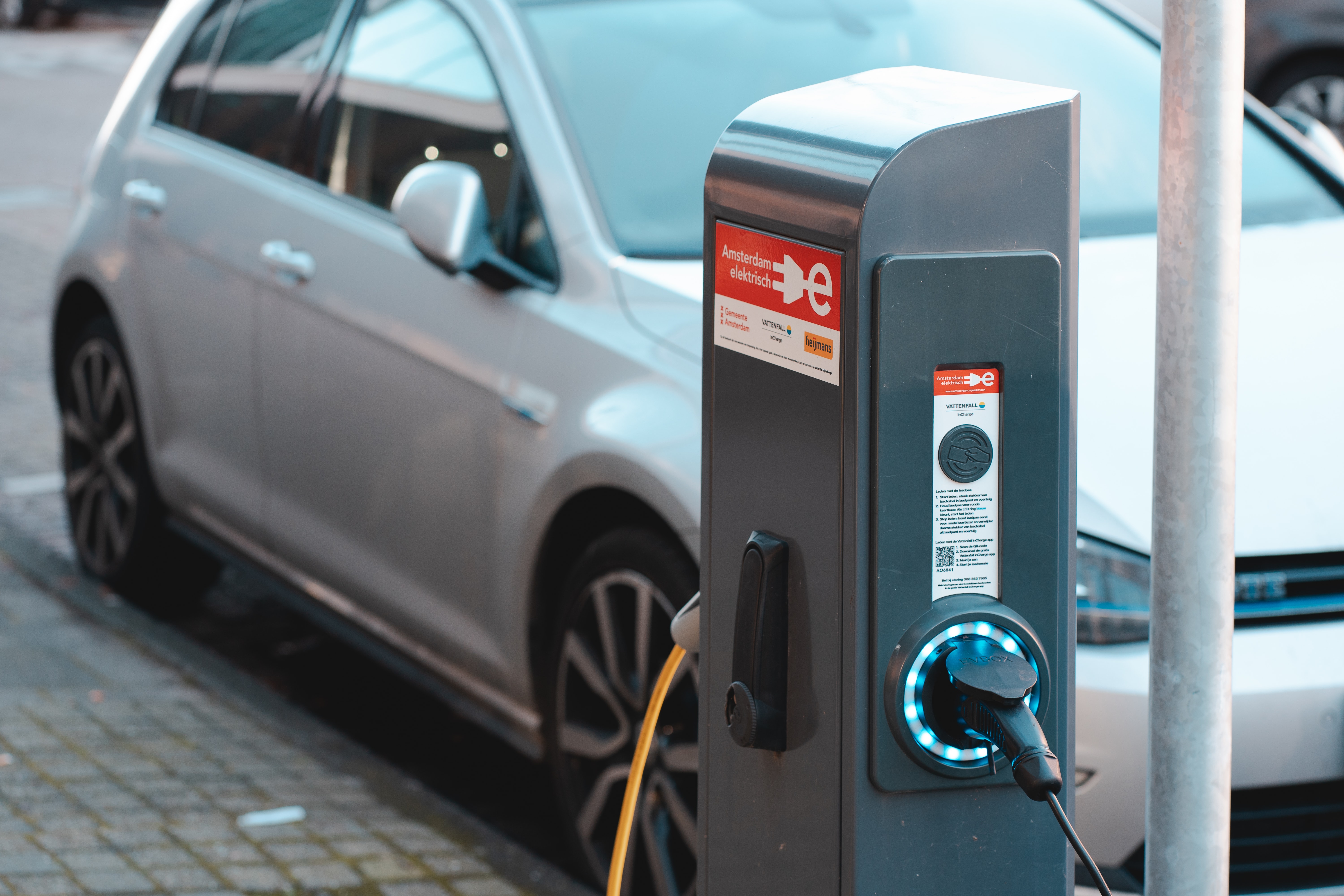
When you imagine the future, do you imagine clean, unpolluted air? That dream is not possible with electric vehicles.
Indirectly, electric cars cause pollution by using fuel-generated electricity. Even the car batteries add to pollution during manufacturing.
Lastly, hydrogen cars will take over the car market because they are a safer and more efficient alternative.
Why electric cars are not the solution?
There are a couple of reasons for this.
First, electric cars are not friendly towards the environment. They add to pollution indirectly by using electricity.
Compared to gas cars, electric cars offer a subpar performance. They even have less range, meaning you can travel longer distances in a fuel car.
Are electric cars the future or not?
The US government is pushing for the use of electric cars. In collaboration with private organizations, the government has pledged billions of dollars into the effort.
Even if the government manages to construct charging stations and create longer lasting batteries, will electric cars become environmental-friendly?
The answer is: no. For example, 60% of the electricity in the US is generated using fossil fuels. Plus, the manufacturing of car batteries creates a lot of pollution.
10 Reasons why electric cars are bad
Here are 10 reasons why electric cars are not the future of clean travelling –
- Cost – As of now, electric cars are way more expensive than their fuel counterparts.
- Performance – Electric cars do not have an internal combustion engine, resulting in poorer performance.
- Pollution – They don’t emit greenhouse gases but need electricity to charge which is produced using fossil fuels.
- Inconvenience – Only major metropolitan cities have battery charging stations.
- Waste – Electric car batteries will add to electronic waste.
- Capacity – A fuel tank has more capacity than an electric car battery.
- Emission – When electric car batteries decay they start releasing CO2 gas.
- Incompatibility – Electric cars are less compatible with solar and wind energy.
- Competition – The universal emphasis on electric cars is neglecting the research on other alternative fuels.
- Backward – Electric cars are less compatible with autonomous driving technology.
Why are electric cars not a solution?

Electric cars are far from being a permanent solution to pollution and climate change. The idea that electric cars do not add to pollution is a myth.
Fossil fuels are burned to produce electricity in many countries. The same electricity powers electric car batteries. Indirectly, electric cars contribute to pollution.
Replacing gas cars with electric cars will be expensive. All gas stations will have to convert to charging stations. This seems impractical.
Why electric cars will never work? – Reddit forum
What the supporters of electric cars don’t understand is that electric cars also cause pollution. They use fuel-generated electricity to recharge.
Then there is the battery which needs a lot of material for production. Mining these materials also adds to pollution.
Eventually, hydrogen fuels will take over before electric cars have the opportunity to upgrade and become more efficient. This is why electric cars are not the future.
What are the negatives of electric vehicles?
Electric cars may not produce any emissions themselves, but they contribute to pollution nevertheless.
Charging an electric car battery requires electricity which comes from the burning of fossil fuels.
Besides this, electric cars have other negatives. The production of batteries requires raw materials like copper, iron, and aluminum. It also needs rare materials like nickel and cobalt.
To obtain these materials, mining is required. This activity causes a lot of pollution. Then, these materials have to be supplied which also adds to the problem.
Why electric cars are the future?
Electric cars can become the immediate future, but not because they are the solution to the global climate crisis.
Many governments are pushing for the adoption of electric cars to reduce their net carbon emissions. For example, Canada will not allow the sale of fuel cars from 2035.
Even the US and the UK are onboard. In fact, the UK plans to ban the sale of gas cars in 2030, five years earlier than Canada.
Prospects like these hint at a future with electric cars on the road.
What is the biggest problem with electric cars?

Car batteries add to electronic waste
Although newer innovations are trying to solve this problem, the biggest problem with electric cars is range.
An average gas car can outlast an average electric car in the market. Also, electric cars do not have access to charging stations.
Some metropolitan cities have this facility. But if you drive to a rural location you can forget about finding a station to recharge your car.
Another concern is the car battery. Electric car batteries are temperature sensitive. High heat wears the battery down faster while extreme cold reduces the car’s range.
Hydrogen cars are the future not electric
The real future of travelling are hydrogen cars, not electric. They offer a more efficient and clean solution to the climate crisis.
Hydrogen cars offer more range than electric cars. This is because the energy storage in hydrogen cars is densely packed.
Refueling your car with hydrogen takes as much time as refueling a gas car. But most electric cars can take up to hours to recharge.
The only problem is obtaining pure hydrogen. Despite being the most common element in the universe, Hydrogen cannot be found in its pure form on earth.
Biggest problem with electric cars
There are many problems with electric cars. They may seem harmless due to zerio carbon emissions of their own, but don’t be fooled.
By using electricity, electric cars indirectly add to pollution. Even their batteries lead to CO2 emissions once they start decaying.
In terms of performance, they are no match for gas cars. The lackluster performance of electric cars boils down to the lack of an internal combustion engine.
When it comes to range, electric cars go down quickly. Compared to gas stations, there aren’t enough charging stations to support electric cars.
Currently, electric cars are not very affordable. For most people, gas cars are more accessible and manageable.
Electric cars are not the future – Reddit forum
Even though many governments are banning the sale of fuel cars, electric cars are not the way to go.
Contrary to popular belief, electric cars cause pollution. They may not do it directly, but they use electricity which comes from non-renewable sources.
In terms of range and performance, electric cars cannot compete with gas cars. Also, the current infrastructure is more conducive to gas cars than electric.
Lastly, recharging an electric car can take hours. Some models have faster charging time, but it is still slower than filling gas at a station.
FAQ relating to Why electric vehicles are not the future
Why gas cars are better than electric?
Gas or fuel cars can outdrive electric cars because of more fuel capacity. Electric cars cannot travel that far due to current technological restraints.
The economy supports fuel cars as you can find a gas station easily. Electric cars will have a hard time travelling long distances because of few or no charging stations.
Will gas cars be worthless in 5 years?
No, gas cars will not be worthless in the next 5 years. However, many governments across the world are promoting electric vehicles over fuel vehicles.
Some governments have set a deadline to ban all gas vehicles.
Will gas cars go away?
Eventually they will. Fuel cars are undoubtedly harmful for the environment due to emissions.
A much safer alternative is biofuel. It does not release any harmful emission and maintains the vehicle’s performance.
Are gas cars going to be banned?
Yes, many countries are gearing towards a ban on the sale of gas cars. For example, the US government passed a law banning the purchase of fuel vehicles by 2035.
The ban does not apply to space and military vehicles.
Key Takeaways
- Dumping of electric car batteries adds to electronic waste.
- Electric car batteries emit greenhouse gases like CO2.
- The production of electric car batteries leads to a lot of pollution.
- Electric vehicles are less compatible with wind and solar energy.
- Hydrogen cars are more sustainable than electric vehicles.
- The US government has issued a law banning the purchase of gas vehicles by 2035.
- The global infrastructure will not be able to support an electric car-only economy.
- Lavender Oil - February 2, 2025
- Electric Cars with Solar Panels On Roof: The Future of Sustainable Driving - January 29, 2025
- Best Cheapest Electric Car Reddit Comments - January 23, 2025

